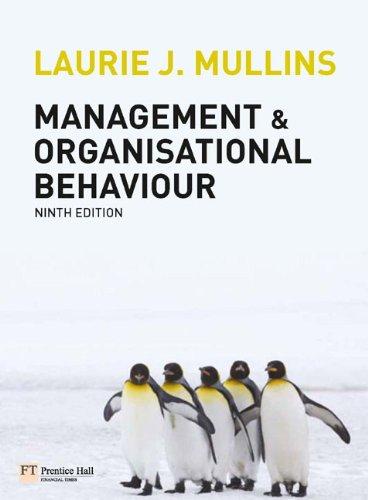The onset of the financial crisis which hit the banking and finance sector in 2007 has had
Question:
The onset of the financial crisis which hit the banking and finance sector in 2007 has had dramatic repercussions in most areas of working life. The inquest has thrown up many questions about the decisionmaking process and the degree of responsibility exercised by top finance teams. Some of the fallout is suggesting that a big part of the problem was the lack of women at the top. Women are showing themselves to be a significant presence in the financial sector; it is argued that they do not exercise power as recklessly as men, take fewer risks and are a potential source of organisational stability. So why don’t they make it to the top? For a number of researchers and campaigners in the field, it’s all about what you say. The way in which people in organisations communicate, and how those communications are perceived and acted upon can have a major impact on individual success, team performance and personal career paths. Whilst questions of perception and communication may not tell the whole story about the position of women in organisational life, they do tell part of it. Many women may not be able, or even wish, to challenge the dominant masculine model of society in general and work organisations in particular (this dominance of a male paradigm is often termed patriarchy). Nevertheless, information about gender-related differences in matters of perception and communication can help individuals, both men and women, to become more effective in their working lives.
Your tasks
1. Analyse the issues raised in this case using the concepts of legitimate (organisational) power and personal (informal) power. What can we learn about the relationship between perception, communication, status and power in organisations?
2. How should senior managers, in particular those who are responsible for the assessment and promotion of staff, act in the light of the concept of the ‘80/20’ rule?
3. Discuss the reasons for and against the use of women-focused training such as that offered by Diafora and the Cranfield International Centre for Women Leaders. How else might organisations ensure that opportunities for career enhancement are fair? How important is this for organisational effectiveness?
Step by Step Answer:

Management And Organisational Behaviour
ISBN: 9780273728610
9th Edition
Authors: Laurie J. Mullins, Gill Christy





